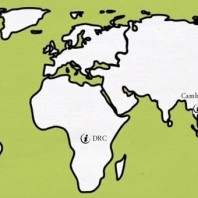BIC, along with in-country partners, has published three new case studies on the impacts of several World Bank projects on forests and forest communities. You can find them below: A Case Study of the World Bank’s Land Allocation for Social and Economic Development Project in Cambodia The World Bank Para Rural Integrated Development Project: A …
The World Bank Group is the largest source of multilateral finance for forests, and a standard setter for international finance broadly. However, the Bank invests significantly more each year in sectors demonstrated to be primary drivers of deforestation such as agriculture, energy and mining, and transportation; than what it invests in forests. The Bank Information …
The outgoing World Bank Country Manager for Brazil, Mahktar Diop, challenges the conclusions of an evaluation by Bank Information Center of the $1.3 billion Sustainable Environmental Management Development Policy to promote environmental reforms in Brazil.
It took many years to establish the World Bank’s operational policies that safeguard society and the environment, and are some of the world’s highest development standards. As the Bank reviews these policies, civil society is organizing efforts to present their concerns and expectations, and offer their inputs as to what the outcome of the review should be.
Makatar Diop, the director of Brazil responds to civil society about their inquiry on the transparency of the activity involving DPLs between the World Bank and BNDES.
The World Bank and the Government of Bolivia recognize the observations of the TCO Takana I on deficiencies in the Indigenous Peoples Plan of the Ixiamas – San Buenaventura Highway project and accept to start a process to improve the Indigenous Plan even after the project was approved.
The project has a great potential to reorder and even positively or negatively change the dinamics of development and conservation in the region. Bolivia’s government has decided that the PAD will not be public before it’s approved. It seems that the project underestimates its indirect influence, and there are shortcomings in planification and consultation.
Despite recent internal reforms, new evidence raises questions about bank quality control. In direct contrast to IDB management claims, the OVE evaluation found the actual evaluability of projects has deteriorated markedly when measured using a consistent methodology applied to three cohorts of projects.
As the World Bank sets out to review and update its Safeguard Policy framework over the next two years, the Operational Policy 8.60 governing the use of DPLs should be included in that review. This brief identifies five areas of DPL policy guidance that merit revision and could guide a full DPL evaluation.


